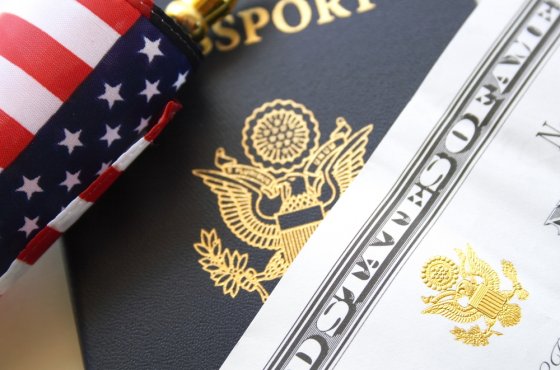As an American, 17 taught years at school, but never learned to read
John Corcoran grew up in the US state of New Mexico in the 1940-50's. He was one of six children in the family, graduated from high school, entered the university and became a teacher in the 1960s. He dedicated 17 life to this work. However, in a conversation with a reporter Bi-bi-si He admitted that he kept a very unusual secret all this time.

Photos provided by John Corcoran.
When I was a child, my parents told me that I was a winner, and for six years I believed in what they told me.
I started to speak late, but I went to school with a great hope of learning to read like my sisters. In the first year of study, everything went well, because we were required to do little: get up in the right row, sit down, keep your mouth shut and go to the restroom on time.
But in the second grade they started teaching us to read. But for me it was like opening a Chinese newspaper and staring at it - I did not understand what all these lines meant. I turned six, seven, eight years old, and I still didn’t understand how to talk about this problem.
I remember asking at night during prayer, “God, please teach me to read tomorrow when I wake up.” And sometimes I turned on the light, took a book and looked into it, hoping for a miracle. But no miracle happened.
At school, I found myself in a lagging group with other children who were learning how to read. I did not know how to get there, I did not know how to get out of there, and I did not know exactly how to ask about it.
Of course, the teacher did not call us “retarded” (there was no cruelty in our school), but the students used this expression. And when you find yourself in a lagging group, you begin to feel behind.
At parent-teacher meetings, the teacher told my parents: “He is a smart boy, he will succeed.” And I was transferred to third grade.
“He’s a smart boy, he’ll succeed,” and I was transferred to the fourth grade.
“He’s a smart boy, he’ll succeed,” and I ended up in the fifth grade.
However, I could not do it.

"Lord, I can't do this"
In the fifth grade, I almost gave up trying to master reading. Every day I got up, dressed, went to school and seemed to be going to war. I hated the school class. It was a hostile atmosphere, and I needed to find a way to survive in it.
By the seventh grade, I spent most of the day in the principal's office. I arranged fights, defrauded, behaved like a clown, disturbed order, I was expelled from school.
However, this behavior did not correspond to what I felt inside myself - I did not want to behave this way. I wanted to be someone else, I wanted to succeed, to be a good student, but I just couldn't do it.
When I reached eighth grade, I was already tired of tormenting myself and my family. I decided that I would behave as I should - if you behave well in high school, then you can find your way in this system. I wanted to obey my teachers and do whatever was necessary to fit into the system.
I wanted to be an athlete - I had athletic ability. I also had a talent for mathematics - I could count money even before school and remembered schedules well.
I also had social skills - I hung out with college kids, I dated a student who was giving a speech at a graduation ceremony. I was a little king - the girls agreed to do my homework for me.
I could write my name and remember a few words, but I couldn't write a whole sentence—in middle school, I was still at a second or third grade level in reading. But I never told anyone that I couldn't read.
When I wrote tests, I peeked at someone else's work or gave my assignments to someone else who answered the questions for me - it was simple deception. However, when I went to college on an athletic scholarship, things got more complicated.
I thought: “Lord, this is beyond my strength, how can I get through this?”
I was part of a community that had copies of old exam papers. There was one way to cheat. I tried to go to class with someone who could help me. There were teachers who used the same tests every year. But it was necessary to resort to more sophisticated tricks.
In one exam, the teacher wrote four questions on the board. I was sitting at the far end of the class, near the window, behind the backs of the older students.
I carefully copied four questions from the board into my blue notebook, but did not know what they meant.
I arranged with my friend to stand by the window. It was probably the cleverest boy at school, but he was shy and asked me to mix him with a girl named Mary, with whom he wanted to go to a dancing evening on the occasion of the end of the semester.
I handed him a blue notebook, and he answered my questions. In the meantime, I took another notebook from under my shirt and pretended to write in it.
I prayed that a friend would give me my notebook with the correct answers. I was desperate, I had to take this course, I took the risk.

mission impossible
There was another exam, which I did not know how to pass.
One night I walked past the teacher's office, he wasn't there. I opened the window with a knife and climbed inside like a thief. Now I had crossed the line - I was no longer just a cheating student, I had become a criminal.
I got inside and started looking for exam papers. They were supposed to be in the office, but I couldn't find them. There was a locked file cabinet - that's where the tests were supposed to be.
For two or three nights in a row, I tried to find the exam tickets, but I could not do it. Then I took three friends with me, and at night we all entered the office. We took out a file cabinet with four drawers, put it in the car and took it to the residential part of the college.
I made an agreement with the locksmith. I put on a jacket and tie, pretending to be a young businessman who was leaving for Los Angeles the next day, and the locksmith was supposed to save me by opening the file cabinet.
He opened it and gave me the key. To my great relief, there were more than 40 copies of the exam in the top drawer. I took one copy to my dorm, where one of my classmates made me a fake copy with the correct answers.
We took the file cabinet back, and by five o’clock in the morning I was walking to my room and thinking: “Mission impossible accomplished!” I felt good because I turned out to be so smart.
But then I went upstairs, got into bed and started crying like a baby.
Why didn't I ask for help? Because I did not believe that someone could teach me to read. That was my secret, and I kept it.
Cage with lions
My teachers and parents said that college graduates get a better job, they have a better life, and I believed it. My goal was just to get this piece of paper. Perhaps I will learn to read sometime through prayer or miracle, I thought.
So, I graduated from college, where at that moment there was a shortage of teachers, and I was offered a job. It was the most illogical thing imaginable - I had just left the cage with the lions and now I was falling into the same cage.
Why did I decide to teach? Looking back, it seems crazy. However, I made it through high school and college without ever getting caught—so a teaching position could be a good refuge. After all, no one will suspect a teacher of not knowing how to read.
I taught many different subjects: physical education, social studies. I also taught typing - I could type up to 65 words per minute, but I did not understand what I was typing. I had never written on a chalkboard and there weren't any printed words in my classroom. We watched a lot of films and had a lot of discussions.
I remember how scared I was. I had to ask students to say their names so I could hear them. And I immediately chose two or three students who could read and write best to help me. They were my irreplaceable assistants, and they did not suspect anything - after all, I was a teacher.
One of my biggest fears was teacher meetings. They were held once a week, and if there was a discussion, the director would call someone to write ideas on the blackboard. I lived in fear that they would call me, I was afraid of it every week, but I had a backup plan for this.
If he called me, I would get up from my chair, walk two steps, grab my chest and fall to the floor in the hope that they would call an ambulance. Anything to avoid getting caught. And I never got caught.
Sometimes I thought I was a good teacher because I worked hard and was really interested in what I was doing. But I was wrong. I was not part of this class, I was an illegal immigrant. I wasn't supposed to be there, and sometimes the work physically hurt me. But I was trapped, I couldn't tell anyone about it.

"Katie, I can't read"
I got married while I was working as a teacher. Marriage is a sacrament, a commitment to be honest with another person, and that was the first time I thought, “Okay, I'll trust this person, I'll tell her.”
I practiced in front of the mirror: “Katie, I can’t read. Katie, I can't read."
One evening we were sitting on the couch and I said, “Katie, I can’t read.” But she didn't understand what I meant. She thought I meant to say that I don't read much.
You know, love is blind and deaf. So we got married, we had a baby, and only years later she learned my secret.
I read aloud to our three year old daughter. We read aloud to her regularly, but I didn't actually read, but made up stories on the fly - like telling the tale of Goldilocks and the Three Bears and adding a little drama.
But one day a new book came into my hands - the Brothers Grimm fairy tale “Rumplestiltskin”, and my daughter said: “You don’t read it like your mother.”
My wife heard me trying to read a children's book, and then she began to guess about everything. I asked her to help me write different things, including for school, and in the end she understood how serious it was.
But she said nothing, there was no conflict, she just continued to help me.
This did not bring relief, because inside I felt retarded and false. I was a liar. I taught my students to search for the truth, and I myself was the main cheater in the class. Relief came only when I finally learned to read.
I taught high school from 1961 to 1978 a year. Eight years after leaving this job, something changed.

John Corcoran and his granddaughter Kayla Mertes. John’s mystery revealed when he began to read aloud to his daughter
Literacy course
I was 47 years old, almost 48, when I saw Barbara Bush on TV, then the first lady of the United States who talked about adult literacy. This was her special course. I have never heard anyone talk about adult literacy before. I thought I was the only person in the world who was in that situation.
At that moment I was in dire straits. I wanted to tell someone about this, I wanted to get help. One day I was standing in line for groceries, and two women in front of me were talking about their adult brother who went to the library. He learned to read, and they were happy for him, but I could not believe it.

Barbara Bush inspired John Corcoran to ask for help and learn to read
On Friday evening, I went to the library and asked for a meeting with the director of the literacy program. I told her that I could not read.
This was the second person in my adult life to whom I revealed my secret.
I started studying with a volunteer teacher - she was 65 years old. She was not a teacher, she just enjoyed reading and believed that everyone should learn this skill in their life.
The first thing she tried to encourage me to start writing. After all, I had so many thoughts in my head, and I have not written a single sentence in my whole life. The first thing I wrote was a poem about my feelings. In poetry, you do not need to know what a full sentence is, you are not required to write complete phrases.
She brought me to sixth grade literacy levels - I thought I had died and gone to heaven. However, seven years passed before I began to feel like a truly literate person.
I cried a lot after I started learning to read - there was a lot of pain and despair. But it filled a huge void in my soul. Adults who cannot read feel stuck in childhood—emotionally, psychologically, academically, and spiritually. We haven't really grown up.
My teacher encouraged me to tell my story to motivate others and promote literacy. But I said, “No, no way. I have lived in this community for 17 years, my children are here, my wife is here, my parents are here. I won't tell you anything."
But then I decided on this. It was a shameful secret for which I was ashamed, so the decision was serious.
It was not easy, but since I decided to tell my story, let them hear about it throughout America. I spoke with everyone who wanted to hear it. I kept my secret for decades, and then revealed it to the whole world.
I participated in the Larry King show, in the ABC news, in the Oprah Winfrey show.
People felt embarrassed when they heard the story of a teacher who could not read. Some said that it was impossible at all, and that I had just invented everything.

John Corcoran and his family today
But I wanted people to know that there is hope that problems can be solved. We are not retarded, we can learn to read, it is never too late.
Unfortunately, we are still pushing children through school, without imparting basic reading and writing skills to them. But this vicious circle can be broken, if not just blaming teachers for everything, but to ensure that they are well prepared.
48 years I lived in darkness. But in the end I got rid of this skeleton in the closet, I said goodbye to the ghosts of the past.
The story of John Corcoran recorded Sarah McDermott, photos provided by John Corcoran.
Read also on ForumDaily:
4 medical professions for which the US does not need to study for years
10 popular in the US professions with good pay
As an immigrant from Belarus, we built a successful business in the USA and now helps earn others
How Russian emigrant has created a social network in the USA and makes good fortune
In New York, is being recruited to the school to quickly get a profession from scratch
Subscribe to ForumDaily on Google NewsDo you want more important and interesting news about life in the USA and immigration to America? — support us donate! Also subscribe to our page Facebook. Select the “Priority in display” option and read us first. Also, don't forget to subscribe to our РєР ° РЅР ° Р »РІ Telegram and Instagram- there is a lot of interesting things there. And join thousands of readers ForumDaily New York — there you will find a lot of interesting and positive information about life in the metropolis.











